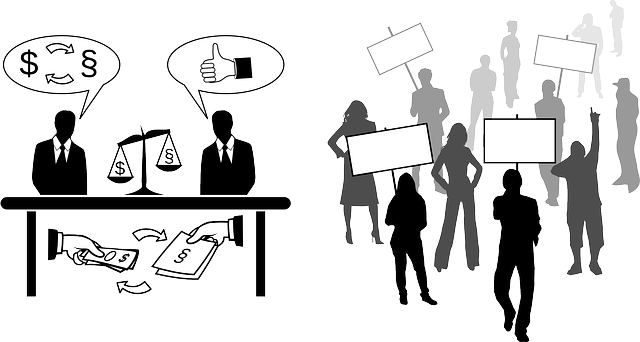 More than ever before, companies find themselves in the crosshairs of public anger due to their political donations and spending. Companies face heightened reputational and business risks when their political spending and core values conflict, according to a new report from the Center for Political Accountability (CPA).
More than ever before, companies find themselves in the crosshairs of public anger due to their political donations and spending. Companies face heightened reputational and business risks when their political spending and core values conflict, according to a new report from the Center for Political Accountability (CPA).
“The report should provide a wakeup call to public relations professionals who advise companies about the need to take a broader and longer view of their political spending and to weigh the immediate and long-term risks it poses to their reputation and image,” write CPA President Bruce Freed and Karl J. Sandstrom, a senior counsel at Perkins Coie and a former member of the Federal Election Commission, in a post for the Institution for Public Relations.
Examples of Corporate Contradictions
The report from CPA, a nonpartisan, non-government organization, cites several examples of companies that supported candidates with views that contradict their core values.
Following the Parkland, FL., shootings, Grocery chain Publix Super Markets Inc. found itself the target of a boycott due to its contribution to a Florida gubernatorial candidate who supported the National Rifle Association (NRA). The company said it donated to the candidate because he was pro-business, not because he was pro-gun. Its explanation did not satisfy the public.
Corporate political spending can inadvertently lead to laws that contradict the ideals companies espouse. Companies may face tough questions from the media and other watchdogs. For example: Companies demanded North Carolina repeal its law that restricted restroom access for transgender people. Yet many of those same companies helped Republican candidates gain control of the state legislature and enact the law in the first place.
Media investigations revealed the companies’ apparent hypocrisy, exposing the businesses to reputational damage.
The Climate-Change Conflict
Many major corporations argued for keeping the United States in the Paris climate accord, professing their of support measures to slow climate change. But many of those companies – including Google, Microsoft and Facebook – donated millions to the Republican Attorneys General Association. Most of the Republican attorneys general had sued to stop regulations designed to limit planet-warming emissions from coal-fired power plants.
“These companies support climate action, so why are they funding opposition to it?” demanded the headline of a Center for Public Integrity article.
“In each case, the consequences of company political spending clashed with the policies, core values, positions and business strategies of many leading US companies,” Freed and Sandstrom say. “These unintended consequences can have public relations and bottom-line implications.”
It’s impossible to know precisely how much money corporations invest in politics. Companies can make indirect contributions to trade associations or nonprofits. Because many groups are not required under U.S. law to disclose their donors, the millions they spend in “dark money” cannot be traced to their sources.
How Companies Can Protect Their Reputations
Corporations can protect their reputations by enacting corporate governance safeguards to align their political activity with their core values and positions, the report says.
The decision to support a political campaign or cause should be supported by a solid business rationale and aligned with the company’s values and policies, recommends the Handbook on Corporate Political Activity from the Conference Board.
The Conference Board urges companies to ask two main questions:
- Can a strong case by made that the spending advances the corporation’s key business objectives?
- Does the spending threaten the company’s reputation or expose it to unnecessary risks?
The handbook advises company boards to:
- Set clear policies that establish what kinds of political spending the company will – and will not – engage in.
- Outline decision-making procedures management will follow regarding political spending,
- Require disclosure of any political spending.
Bottom Line: Political donations expose companies to reputational risks and customer boycotts. That’s especially true when companies support politicians with views that contradict values the companies champion in public. Even if those contributions may be indirect through associations, media investigations may expose the donations or financial support and portray the donor companies as hypocritical.
William J. Comcowich founded and served as CEO of CyberAlert LLC, the predecessor of Glean.info. He is currently serving as Interim CEO and member of the Board of Directors. Glean.info provides customized media monitoring, media measurement and analytics solutions across all types of traditional and social media.




